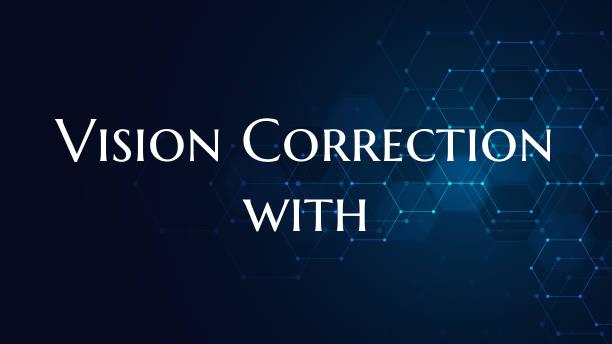
Vision Correction with
Vision Correction with Lasik Surgery: A Comprehensive Guide
Introduction: In recent years, technological advancements have revolutionized the field of vision correction, providing individuals with various options to improve their eyesight. One of the most popular and effective methods is Lasik surgery. Lasik, which stands for laser-assisted in situ keratomileusis, has transformed the lives of countless individuals by offering them clear, sharp vision without the need for glasses or contact lenses. In this comprehensive guide, we will explore the various aspects of vision correction with Lasik surgery.
Understanding Lasik Surgery: Lasik surgery is a refractive surgery procedure that aims to correct refractive errors such as nearsightedness (myopia), farsightedness (hyperopia), and astigmatism. During the procedure, a specially trained ophthalmologist uses a laser to reshape the cornea, the transparent front part of the eye, to improve how light rays are focused on the retina.
Candidates for Lasik Surgery: Not everyone is a suitable candidate for Lasik surgery. Ideal candidates for the procedure are individuals over 18 years of age with stable vision for at least a year, good overall eye health, and realistic expectations about the outcomes of the surgery. A comprehensive eye examination by an experienced eye care provider will help determine whether Lasik surgery is the right option for a particular individual.
Benefits of Lasik Surgery: Lasik surgery offers numerous benefits, including:
1. Improved Vision: Many individuals experience significantly improved vision after undergoing Lasik surgery, often achieving 20/20 vision or better. 2. Quick Recovery: Most patients experience a quick recovery time, with many returning to their normal activities within a few days after the procedure. 3. Long-lasting Results: The majority of patients enjoy long-term vision correction results after undergoing Lasik surgery. 4. Reduced Dependence on Glasses or Contact Lenses: Lasik surgery can reduce or eliminate the need for glasses or contact lenses for many individuals.
Risks and Considerations: Although Lasik surgery is considered safe and effective for the majority of patients, there are potential risks and complications associated with the procedure. These may include dry eyes, glare, halos, and difficulties with night vision. It is essential for individuals considering Lasik surgery to discuss these risks with their eye care provider and weigh them against the potential benefits.
Conclusion: Lasik surgery is a popular and effective method for vision correction, offering individuals the opportunity to achieve clear, sharp vision without the need for glasses or contact lenses. By understanding the procedure, knowing the eligibility criteria, and considering the potential risks, individuals can make an informed decision about whether Lasik surgery is the right choice for improving their eyesight. If you are considering vision correction with Lasik surgery, consult with an experienced ophthalmologist to discuss your options and determine the best course of action for your eye health and visual needs.